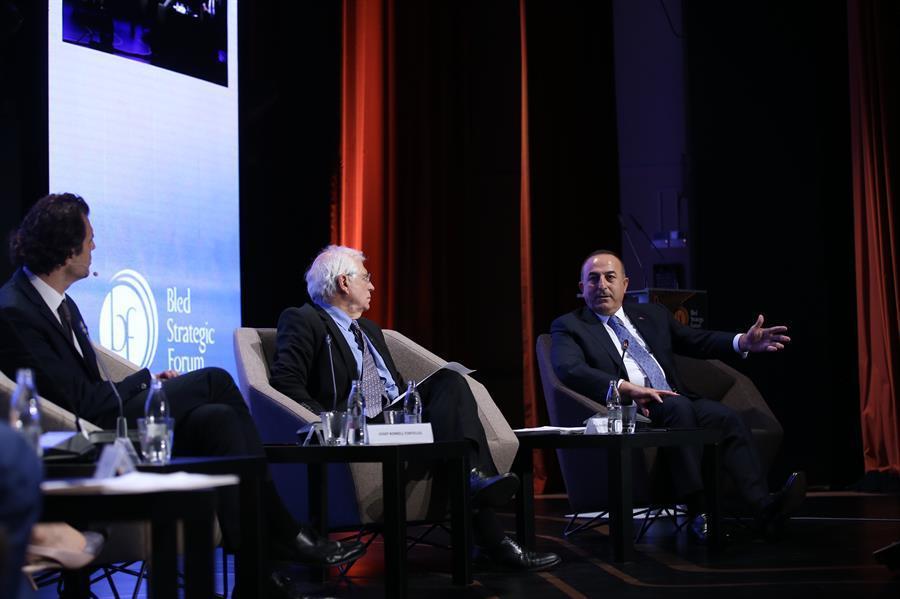
Turkey's foreign minister said on Sept. 2 in order to tackle the root causes of irregular migration the source countries have to be helped.
Speaking at a panel on multiculturalism at the 14th Bled Strategic Forum in the Slovenian resort town, Mevlüt Çavuşoğlu said the world has failed to deal with the problem of irregular migration.
Çavuşoğlu said the source countries of migration did not receive the necessary support they needed from other countries.
"There are around 70 million displaced persons in the world. This number is more than the displaced persons during WWII," he said.
He said that Turkey is a transit country for irregular migration.
"We have spent $37 billion from the state budget and what we received from the international community is less than $1 billion in addition to what we got from the EU," Çavuşoğlu said.
Turkey hosts some 3.6 million Syrian refugees, more than any other country in the world.
Syria has been locked in a vicious civil war since early 2011 when the Assad regime cracked down on pro-democracy protests with unexpected ferocity.
On Turkey's procurement of the Russian S-400 air defense system, Çavuşoğlu noted that Slovakia and Greece also bought S-300 from Russia.
Stressing that Turkey is a sovereign country, he added: “We had to buy S-400. Because it is our urgent need.”
He also noted that the Netherlands, Germany and the U.S. pulled their missile batteries from Turkish borders when Ankara needed them the most.
Çavuşoğlu said Turkey has been taking steps to boost ties with different regions of the world, and added that policies on Africa, Latin America or Asia are not “alternatives” to Western policies but “rather complimentary.”
He highlighted that doing business with a country “does not mean that it is moving away from the other part of the world," and added: “I do buy 50% of my gas from Russia. But Germany buys 100% percent of its gas from Russia. I bought S-400 from Russia but when it comes to Crimea, we disagree. When it comes to the territorial integrity of Moldova and Georgia, we disagree."